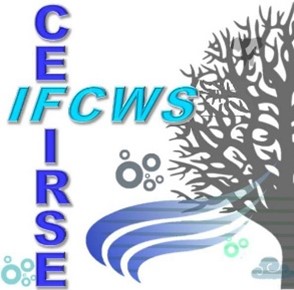The IFCWS is an international laboratory located on Indian Institute of Science campus in Bangalore, which studies water and environmental issues. Its long-term goal is to conduct integrated studies pertaining to water and soils in India, from local (soil-plant profile) to subcontinent scales. The collaboration harnesses the complementary skills between Indian and French researchers in disciplines such as hydrology, geochemistry, remote sensing, modeling, agronomy, oceanography, biochemistry, geophysics, geology, soil science, climate science.
Brief History
2020-onwards
IFCWS transitioned into an International Research Project (IRP, acronym for light international laboratory led at CNRS). IISc allocated new and larger lab and office space. This new phase, chaired by Sekhar M. (IISc), J. Riotte (IRD) and L. Ruiz (INRAE), involves IISc in India and CNRS-INSU, IRD, INRAE, Université Paul Sabatier, Université Toulouse Capitole and Sorbonne Université. It is structured around three research axes :
1. Adaptation of agro- and pristine ecosystems to global changes
2. Continuum continent-ocean-atmosphere
3. Environmental biotechnology (Virtual)
2014-2018
Phase II of the International Joint Laboratory included extended partnerships with the National Institute of Oceanography (Goa) and the Indian Institute of Tropical Meteorology (Pune) in India, as well as CNRS, INRA, Université Paul Sabatier, and Sorbonne Université in France. Up to seven French scientists and engineers were deputed at IISc, NIO, and IITM. It was chaired by S. Subramanian, M.S. Mohan Kumar, and J. Riotte (IRD). Recurring funding was provided by IRD, and to a lesser extent, CNRS and INRA. Research activities were expanded and structured around four new axes :
1. Adaptation of pristine & agro- systems to global changes
2. Continuum ocean-continent-atmosphere: Hydrological cycle & climate variability
3. Environmental biotechnology and bioremediation
4. Urban catchments & water systems (virtual)
2009-2013
Due to strong collaborations established over a decade, IFCWS evolved into an International Joint Laboratory (« LMI, » among the first four created by IRD with its institutional partners). It involved departments from IISc: CAOS, Earth Sciences, Ecological Sciences, and was chaired by J.J. Braun, S. Subramanian, and M. S. Mohan Kumar. Four main axes were then defined :
1. Water cycle and biogeochemical cycles in the context of global change
2. Hydrology from space
3. Agro-hydrology and landscape management
4. Environmental impact on water quality of mining
2013
IFCWS received new and larger lab and office space allocated by IISc.
2010
Hydro-geochemical observations were upscaled from Maddur (7.1km2) to Berambadi (84km2).
2003
The Environmental Observatory « Small Experimental Watersheds » was created to document over the long term the response of agrosystems and ecosystems to climate change. For this, two experimental watersheds, Mule Hole (forested) in the Bandipur National Park and Maddur (cultivated) between Bandipur and Gundlupet were instrumented and monitored. Recurring support for observation activities is provided by IRD, CNRS-INSU, and, since 2006, by Université Paul Sabatier (Toulouse).
2002
IISc constructed a dedicated office and lab space for hosting IFCWS. The IFCWS also received support from the « Fond National pour la Science » to equip the analytical platform with instruments. Between 2000 and 2009, the Embassy of France in India facilitated numerous exchange visits for Indian and French scientists and students involved in IFCWS. Research activities were structured around two axes: hydro-geochemical functioning of pristine ecosystems and agrosystems (« Watershed Project ») and remediation of mining activities (« Mining Project »).
2001
J.J. Braun was deputed for the establishment of IFCWS.
2000, November
The official creation of the Indo-French Cell for Water Sciences took place with the signing of a Memorandum of Understanding (MoU) between IISc and IRD. The IFCWS is led by K. Sridaran (Civil Engg Dept, IISc), K. Natarajan (Materials Dept, IISc), and J.J. Braun (IRD).
1999
The establishment of robust and enduring Indo-French collaborations in the field of water stemmed from a joint initiative by the Ministries of India and France during the Water Week in November 1999, held across Delhi, Mumbai, and Kolkata. This collaborative effort resulted in the formation of four Indo-French cells, among which the Indo-French Cell for Water Sciences (IFCWS/CEFIRSE). IFCWS was established between IISc (Bangalore) and the French Institute for Sustainable Development (IRD) to address water and environmental issues.
Governance
The governance at IFCWS ensured the coordination of the projects from a scientific and technical point of view, the regulation of the legal and financial issues and the distribution of funds. To accomplish these important tasks, the coordination team is composed of three coordinators, currently one from India and two from France. They are responsible for (i) the management of the projects from a legal and financial point of view, (ii) the preparation of the activity reports and (iii) their proper delivery. The coordinators play an important role in managing the project day-to-day in terms of administrative work and in enabling the partners to perform their respective tasks.
